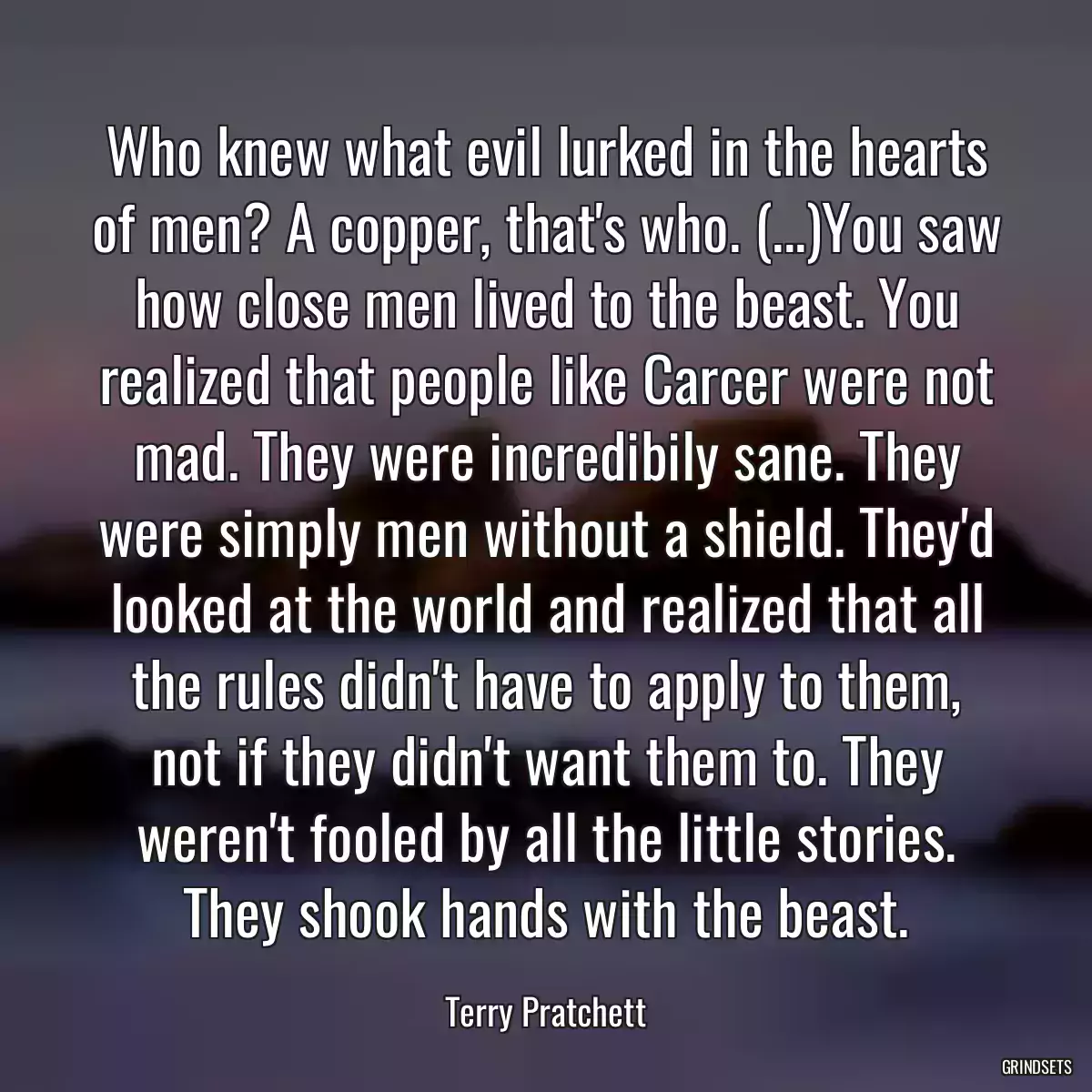
Who knew what evil lurked in the hearts of men? A copper, that's who. (...)You saw how close men lived to the beast. You realized that people like Carcer were not mad. They were incredibily sane. They were simply men without a shield. They'd looked at the world and realized that all the rules didn't have to apply to them, not if they didn't want them to. They weren't fooled by all the little stories. They shook hands with the beast.